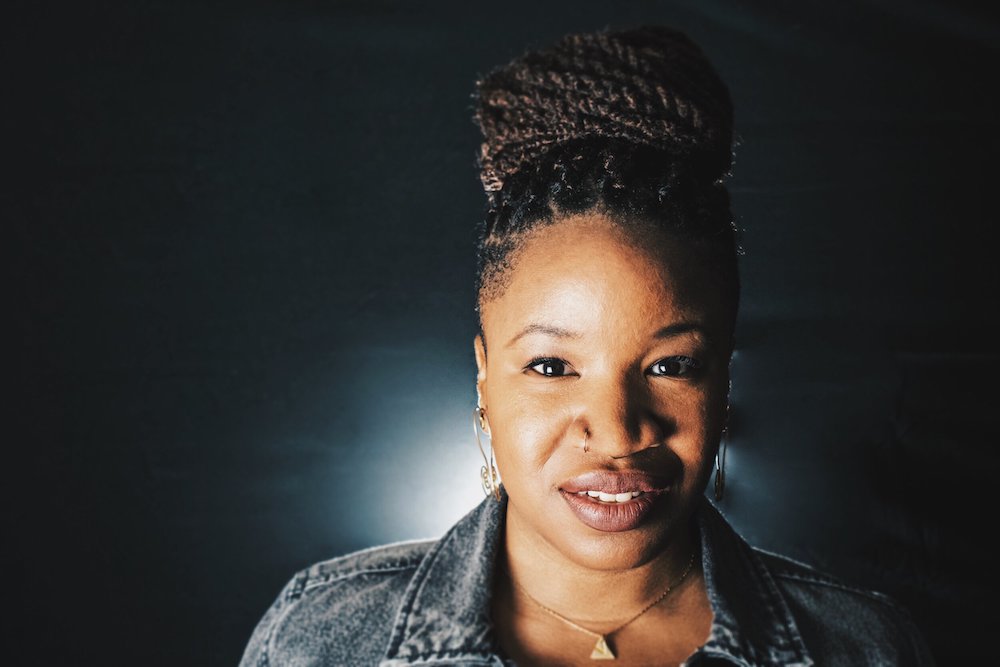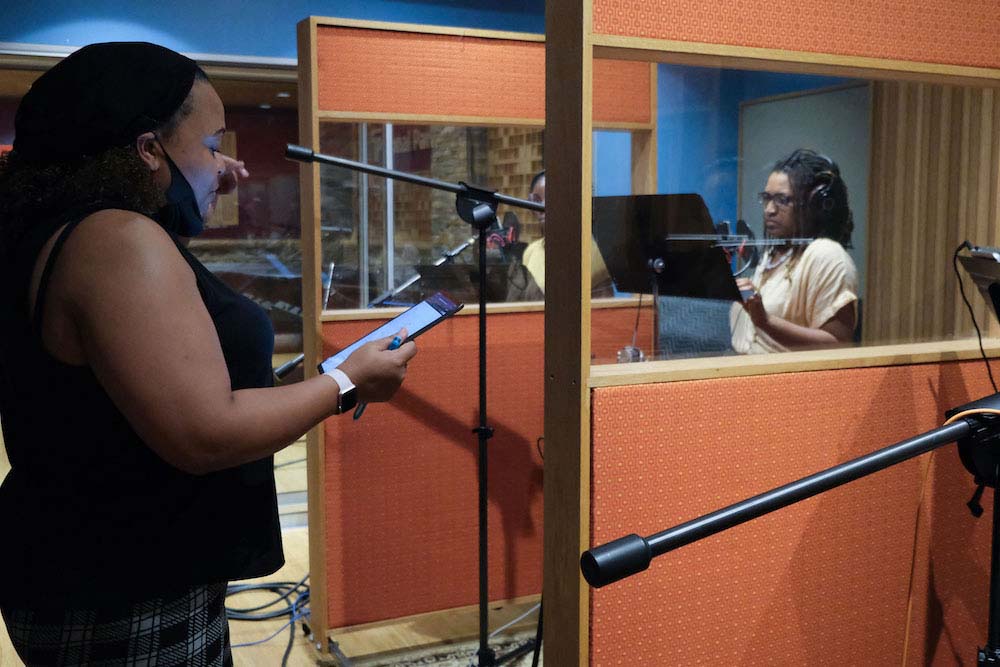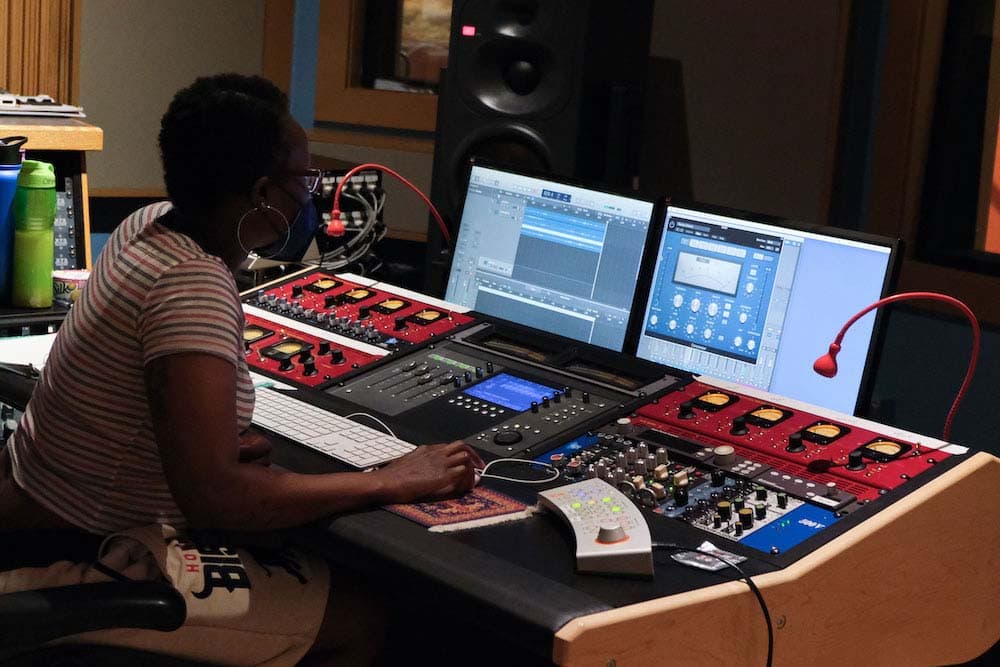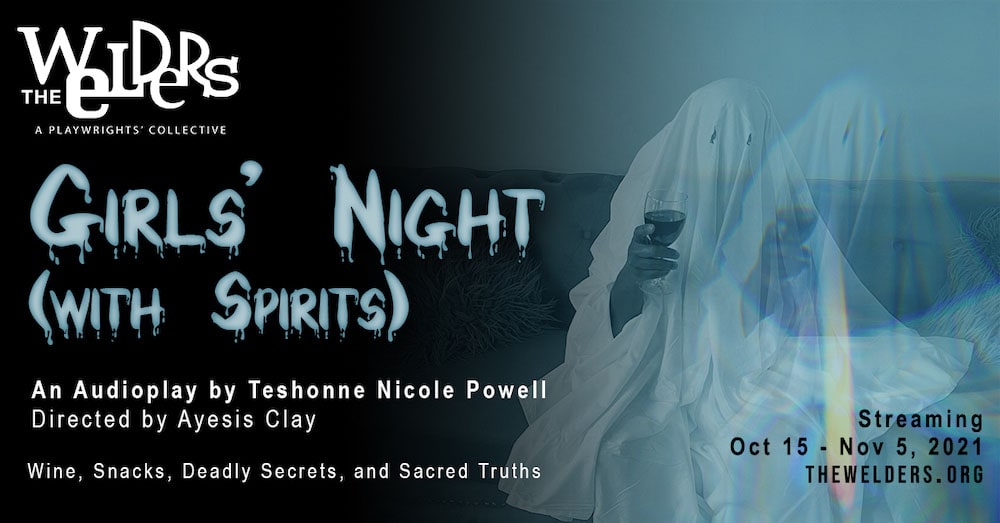There’s a ghost of you within my haunted heart…
Be still my haunted heart.
—”Haunted Heart,” lyrics by Howard Dietz and Arthur Schwartz
October is Halloween month: a time for telling tales about and hiding from goblins, witches, and assorted imagined terrors. We come into this current October having lived for a year and a half in some ongoing American and global horror stories. We continue to witness a critical portion of the USA population and government gleefully embracing and installing fascism and antisemitism. We continue to experience the return to the terrorization and public murder of Black people in city streets and on the country’s borders. And in response to the worldwide borderless and universal threat of COVID, we have experienced the refusal of the people we live among to admit and submit to our unavoidable connection that this disease exposes and necessitates.
In the midst of this ongoing time of terror comes Girls’ Night (with Spirits), a horror story that is the second production from Welders 3.0, the third cohort of the DC playwrights collaborative, The Welders. Their first production, Jared Shamberger’s The B Word, focused on the lives of Black gay men in the DMV. With Girls’ Night (with Spirits), playwright Teshonne Nicole Powell pivots our attention to the lives of Black women.

Since The Welders are not ready to return to live performing just yet, they are presenting Girls’ Night as a virtual production. Many of the virtual productions we have experienced since the pandemic began have been on video. However, Girls’ Night is unique in that Powell has chosen to present this exploration of the terror and healing in the lives of Black women as a radio drama. Teshonne talked about some of the challenges of doing a radio play:
“I can’t control the environment that the audience is listening in. Onstage I had visions of lanterns around the stage and an atmosphere as soon as they walk in. With audio, it is up to the audience member to set the tone for themselves. The audio designer is important to that. But ultimately it is up to the audience member to engage with the play the way I hope they’d want.”
How is producing it on radio a challenge for the content you want to offer? “Some of the content of this show might be triggering. Radio is such a broad platform. It might not be the best platform for dealing with mental health.”
On the other hand, Teshonne notes that accessibility to the show can be more flexible. “Being able to access this program in a variety of ways and locations is important. People will be able to stream it on their way to work or listen to it with friends: listen to it on their own terms in whatever way is most comfortable for them.”
Will this radio drama be like a therapy session? Teshonne explains that navigating and solving the terrors that are uncovered by the Black women in Girls’ Night requires dealing unflinchingly with what she identifies as “mental health” issues, which, more than merely social adaptation or wielding a handy, conventional ghost-busting tool, emphasizes doing what is necessary to acknowledge and heal psychic and spiritual woundings.
“When I think of mental health as it relates to the experiences of Black women, I think of what’s at stake when we ignore what we are feeling, when we ignore our intuition and our bodies. It needs to be okay for Black women to tend to their hearts and their bodies and their minds regularly. Our needs matter. And when we don’t attend to our needs, we will suffer, we will hurt ourselves, we will die. The character in the story [Rey] finds herself in a dark place, and when she doesn’t address it, that dark place grows darker and darker until she can’t ignore it anymore. We don’t need to wait to that point. And we shouldn’t be expected to.”

The narrative of Girls’ Night follows Rey, a Black millennial woman, who believes her home is being haunted. She tries desperately to get rid of the “ghost” that has now begun running water from her bathroom. Then Estelle, an eccentric paranormal expert with secrets of her own, shows up, ostensibly to assist Rey. The presence of the ghost and Estelle forces Rey to finally begin to face up to a shameful secret she has been struggling with and that comes into tangible focus as her home literally begins to crumble around her.
This kind of story has roots in Powell’s life.
“I have always felt in tune and fascinated with the supernatural and the possibility of a realm of existence beyond my understanding. To me, spirits represent a call or a beckoning to something in our lives that we need to address. I think that’s why I gravitated to telling a ghost story of sorts. Also, I have a spiritual connection with my ancestors that I tend to allude to in much of my writing. For me, stories are for reaching back to an ancestor (Sankofa), or perhaps to a pivotal moment in your past and dig for answers and insight.”
Powell was born in Atlanta and grew up primarily in Providence, Rhode Island, moving to DC in 2010 to attend grad school at Howard University. She doesn’t remember a time when she wasn’t making theater. But she explored drama seriously in college as a theater major. She was an administrator and company member for a community theater in Pawtucket, Rhode Island, before obtaining her degree in Communication from Howard. DC is where she became an adult. “I have met and continue to be inspired by the brilliant Black artists who have been here. I’m inspired by the passion of community here.”

It was while working with Goldie Patrick and her FRESHH Inc Theatre Company that Powell was encouraged to take writing seriously. FRESHH Inc commissioned Teshonne “to write for their festival. It was then that I realized that I am not an ‘aspiring’ writer or playwright. I am a writer. I am a playwright. My approach has shifted dramatically in that I used to think there was one way of doing theater. And that perspective was a bit defeating as a Black performer and writer. But now, I see theater as anything I want it to be. I embrace different ways to tell stories to audiences. Theater isn’t meant to be rigid, it’s meant to be freeing. Each night there is a performance, a story can shift and change, and it’s supposed to.”
She joined The Welders because she thought it would be a great opportunity to grow as a storyteller, a playwright, and a theater producer. She hopes through collaboration with The Welders to get to tell her stories the way that they were intended: “to continue to employ local artists of color, to inspire young and emerging playwrights to take on this work and share their stories.”
She envisions stories like the one told in Girls’ Night (with Spirits) as touching the audience in a life-saving way.
“Somewhere in the world, there is someone going to bed crying at night, thinking of ending their life or feeling there is no hope. For me, this play and the characters are integral to exploring the mental and emotional issues Black women face within themselves. The story carries themes like sisterhood, empowerment, and finding one’s strength to solve her own problems by centering herself. I want to explore what’s truly possible for Black women.”
Girls’ Night (with Spirits), an audioplay by Teshonne Powell presented by The Welders, will be available to stream on-demand October 15 through November 5, 2021. Tickets ($25 per device) may be purchased online.
Girls’ Night (with Spirits)
Rey: Karen Elle
Averneq: Lindsay Estelle
Sophia Early: Sad Spirit
Lolita Marie: Grandmama
Ayesis Clay: Director
Cresent Haynes: Sound Designer
Keta Newborn: Stage Manager
About the Welders
The Welders is a DC-based playwrights’ collective that provides an evolving, alternative platform for play development and production. Through our platform, we inspire and encourage each cohort of producing playwrights to:
• Take risks and make bold leaps in exploring the craft of playwriting
• Produce one performance of work created by each member playwright over the course of three years
• Create significant, meaningful, direct engagement between artists and members of the community
•Support future generations of DC-area playwrights, by passing on the organization and its resources to a new cohort of playwrights at the end of their tenure
Founded in 2013 by Bob Bartlett, Renee Calarco, Allyson Currin, Caleen Sinette Jennings, Jojo Ruff, and Gwydion Suilebhan, the third “generation” of Welders playwrights began their tenure in 2020. The Welders are Cat Frost, Farah Lawal Harris, Jared Shamberger, JR Russ, Sisi Reid, and Teshonne Nicole Powell. Learn more about The Welders at thewelders.org.
SEE ALSO:
Jared Shamberger on the urgency of embracing ‘The B Word’ interview by Gregory Ford





